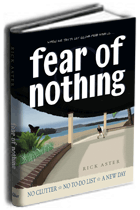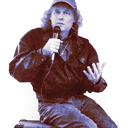The BBC News Magazine story “The Self-Storage Craze” deconstructs the decision-making process that leads people to store possession they don’t use in storage lockers for months or years on end, at considerable cost.
Writers Tom de Castella and Kate Dailey go through some of the familiar mechanisms that make people save things they don’t like enough to have around the house: sentimental attachment, putting off the tough decisions about what to keep, a touch of confusion over the actual costs involved. But they also touched on one that I hadn’t really thought about.
But this is only part of the story, says Brian Knutson, an associate professor of psychology at Stanford University. The “endowment effect” is just as important.
This is the economic theory in which — by the mere fact of owning something we endow a possession with more value than its market price.
It might explain why people spend a huge sum putting an old sofa in storage for a year rather than using that money to buy a new one.
Add in the way people confuse the market value of a possession and its personal value, and we have people making decisions about their possessions that aren’t connected to what the things are worth.
Even if our things were worth as much as we imagined, it wouldn’t mean we had to keep them. A high market value is not a reason to keep something you don’t seem to use, but to sell it. If it turns out to be hard to sell, that is a likely sign that the market value is not as high as you thought. Of course, a low market value is not a reason to keep something either, if you are not actually benefiting from owning it.
The cost of storing your possessions is never more glaring than when you pay it month by month for the delineated space of a storage locker. The fact that so many people pay the high cost of self-storage for perfectly ordinary, replaceable items like furniture, video tapes, clothing, and magazines tells you that people aren’t always making the financially correct decisions about storage.



No comments:
Post a Comment